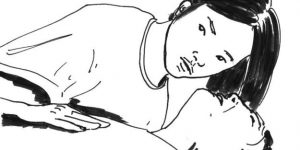
Common Room Heyman Center
Arden Hegele, Heidi Hausse, Carmel Raz, Lan Li
The Society of Fellows in the Humanities, Center for Science and Society and the Institute for Comparative Literature and Society
Explorations in the Medical Humanities
Celine Frigau Manning (Paris 8)
Respondent: Joelle Adi-Rached, Columbia University
Chair: Carmel Raz, Columbia University
In many 19th century narratives, hypnosis was the treatment of last resort in order to tackle persistent pain and attain what René Leriche would subsequently call the “silence of the organs.” Faced with such an adversary, hypnosis and music became part of a rhetoric of spectacle, with public displays of insensibility to pain culminating in musical sequences, or pain itself being used with music to create performative trance states. Though hypnosis has been the subject of a vast body of clinical investigation and historical scholarship, the history of its relationship to music remains unwritten. This talk will explore various narratives of this interaction in an attempt to understand how experiments involving music and hypnosis influenced both doctors’ and patients’ moral understanding of bodies in pain.
As a set of disciplines, the humanities face the challenge of how to write about embodied experiences that resist easy verbal categorization such as illness, pain, and healing. The recent emergence of interdisciplinary frameworks such as narrative medicine has offered a set of methodological approaches to address these challenges. Yet conceptualizing a field of medical humanities also offers a broader umbrella under which to study the influence of medico-scientific ideas and practices on society. Whether by incorporating material culture such as medical artifacts, performing symptomatic readings of poems and novels, or excavating the implicit medical assumptions underlying auditory cultures, the approaches that emerge from a historiographical or interpretive framework are different from those coming from the physician’s black bag.
This lecture series will explore the enigma of how what we write relates back to the experience of bodies in different stages of health and disease. Our speakers will explore how the medical humanities build on and revise earlier notions of the “medical arts.” At stake are the problems of representation and the interpretation of cultural products from the past and present through medical models.







